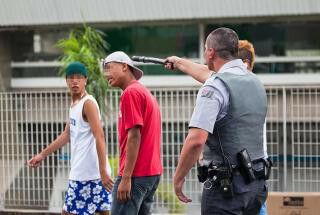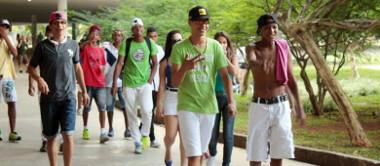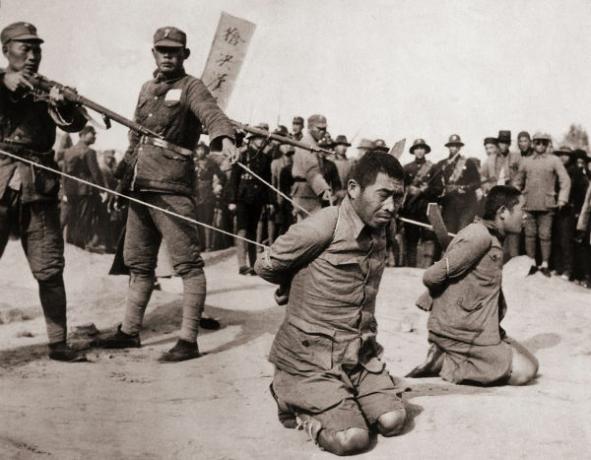A spectrum haunts shopping malls – the spectrum of roll. With the parody of the opening sentence of Karl Marx's Communist Manifesto and Friedrich Engels, from 1848, numerous images ran on social networks intending to satirize the reactions to a social phenomenon of youth that has been taking place in São Paulo and that has spread to several cities in the country: the calls rolls.
The slang is not new. “Dar a rolê” or “give a rolezinho” are expressions that are already common in several urban spaces and express the practice of walking around the city, having fun. The difference from the current rolezinhos is that they are being programmed from social networks, bringing together hundreds (or thousands) of young people and addressing the shopping malls. The rolezinhos started to be called by MCs after a bill appeared in the City Council of São Paulo that intended to prohibit the holding of balls funk in the city. The project was vetoed by Mayor Fernando Haddad, but the rolezinhos did not stop there.
Most of these young people live on the outskirts of cities. When they arrive at the shopping centers, they walk through the corridors and food courts, flirt, take pictures, sing and perform some “steps” used at dances funk.
The majority dresses in clothes from famous brands, following a behavioral pattern that has lately been disseminated in urban centers in São Paulo, linked to the so-called "ostentation funk". This derivation of the musical genre expresses in its lyrics and in the costumes of MCs, dancers and other participants the intention of increasing consumption: speaking of money, cars, purchase of various types of goods for personal use, making apologies for famous brands and emphasizing the sexuality of women and men.

Four names of ostentation funk: Mc Gui, Guimé, Nego Blue and Mc Galo. **
In this way, ostentation funk is totally inserted in the mechanisms of capitalist society: a growing number of workers (or workers in training) increasing their consumption, stimulating production of goods, thus ensuring the so-called "growth" (profit) of companies and the economy as a whole.
However, the phenomenon has not been treated only through the economic mechanisms of capitalism. As with the demonstrations in June 2013, the police repression of rolezinhos – and now also from the administrations of shopping centers, with their private police – made the phenomenon take on a much larger scope than the initial one, becoming a national issue. The administrators' concern is linked to the fact that the "rolezinhos" have a large “potential” of becoming “trawlers”, resulting in theft of shopkeepers in the centers commercials.
In addition, the administrators of these establishments argue that the rolezinhos put at risk the safety of workers, shopkeepers and customers who frequent these places. With these arguments, some shopping centers obtained court injunctions to prevent the performance of the rolezinhos, making it possible to impose a fine on those who violate the court decision.
On the other hand, the rolezinhos raised a debate intrinsic to the Brazilian social structure, which is the social and racial discrimination. Poor young people from the peripheries — mostly black — are being prevented from collectively entering the temples of consumption that shopping centers have become. The criticism is that shopping mall administrations, with police support, are segregating and discriminating socially and racially this sector of Brazilian society, thus reproducing the racism that has always been present in history of Brazil.

Police repression of rolezinho participants
The rolezinho phenomenon is such that both President Dilma Rousseff and the Minister of Racial Equality, Luiza Bairros, as well as the chief minister of the General Secretariat of the Presidency, Gilberto Carvalho, publicly expressed their opinions on the theme. They openly criticized the repression of the rolezinhos and sought ways to dialogue with those involved.
Minister Luiza Bairros even stated that the fear of rolezinhos is a white reaction who frequent shopping malls, derived from the racism that exists in Brazilian society. What would be happening would be a kind of apartheid in shopping malls, in allusion to the racial segregation regime that prevailed in South Africa during the 20th century.
There is concern that the repression of the rolezinhos will set the country on fire again, as it did in June 2013. If in 2013 the protests against the increase in bus fares kept their strength during football matches in the Confederations Cup, the concern now is that the rolezinhos are a prelude to demonstrations against the realization gives world Cup. Avoiding these demonstrations is one of the main concerns of the federal government.
The rolezinhos, however, did not start at the end of 2013. In August 2012, a party to be held in a square in Mooca, a neighborhood in the city of São Paulo, named “Project P”, was called by social networks and ended in police repression. These actions demonstrate an action of the youth to create spaces for sociability and leisure in an ever-increasing context of legislative restriction on the use of urban spaces.

Rolezinho held at Ibirapuera Park.***
For some, the rolezinhos would be a way for young people to guarantee their right to the city, subverting the impositions placed by public authorities and private companies, reusing these places according to their interests. Such a reaction towards the rolezinhos can also be understood as a desecration of the temples of consumption, islands of supposed security embedded in an extremely violent and unequal society.
Rolezinhos participants may just want to consume and have fun. However, the administrators and users of these spaces are not looking favorably upon the invasion of temples by the layer. of Brazilian society that had an increase in income during the 2000s and 2010, massively entering the market of consumption. The rolezinhos are the expression of the contradictions of Brazilian society in motion, but still without a solution in sight.
* Image Credit: R7
** Image Credit: R7
*** Image Credit: R7/Luiz Claudio Barbosa/Futura Press/Estadão Content
By Tales Pinto
Master in History
Source: Brazil School - https://brasilescola.uol.com.br/historiab/rolezinhos-discriminacao-social.htm



